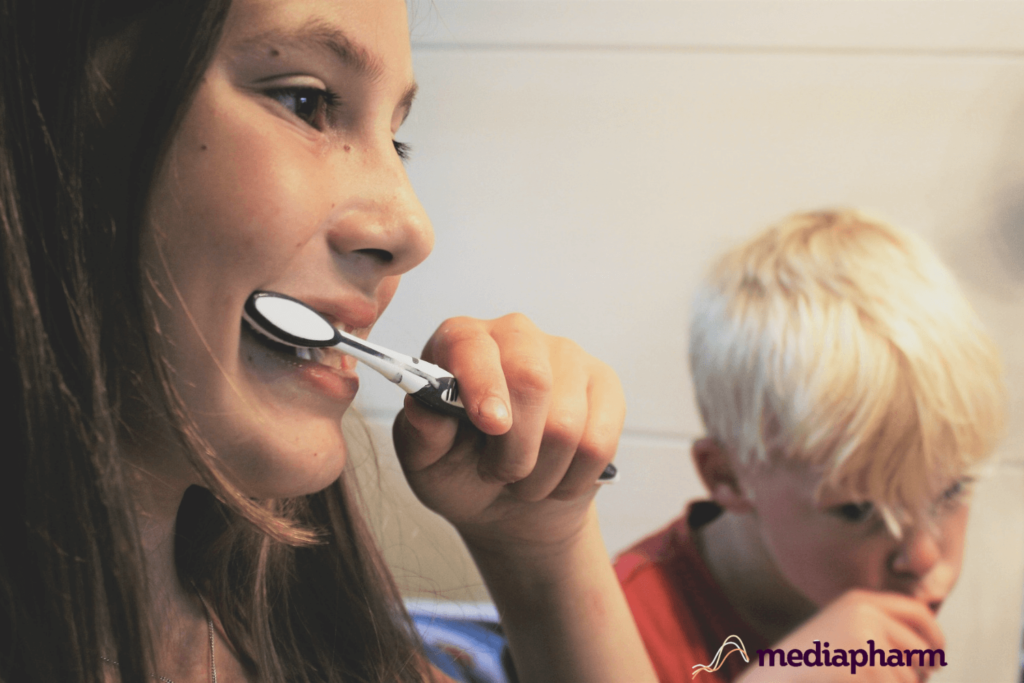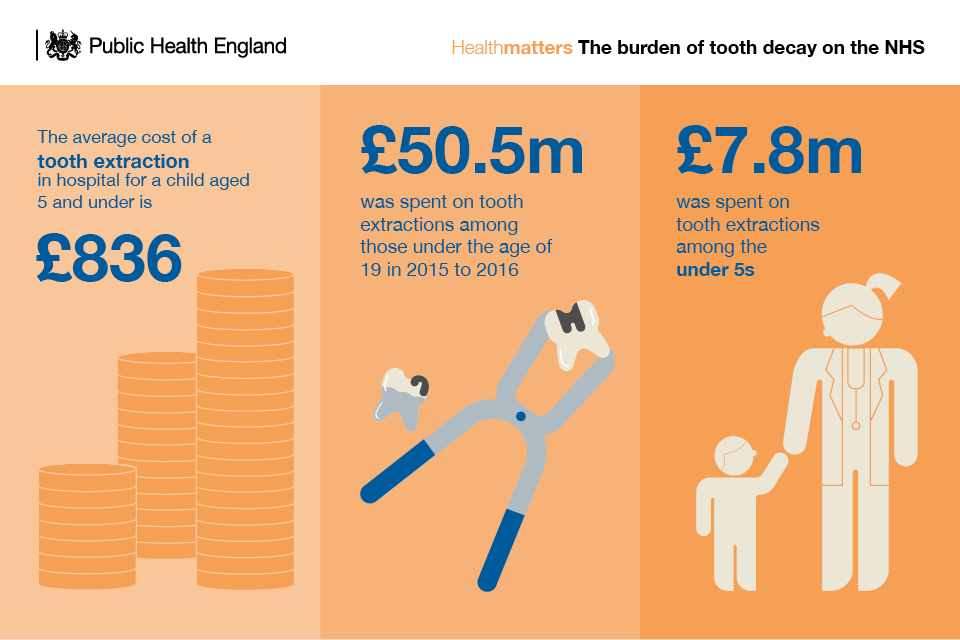
Children should be supervised when brushing their teeth.
What is oral health?
Oral health is a key indicator in the overall health of an individual and includes dental and mouth-related health issues. Children’s oral health is, therefore, an indicator of their overall health and wellbeing.
The World Health Organisation defines good oral health “a state of being free from chronic mouth and facial pain, oral and throat cancer, oral infection and sores, periodontal (gum) disease, tooth decay, tooth loss, and other diseases and disorders that limit an individual’s capacity in biting, chewing, smiling, speaking, and psychosocial wellbeing.”
For children, this also includes teething as a baby and as adult teeth come through.
How can poor oral health affect children?
Tooth decay is the most common form of oral disease that affects children and young people under 19 years. And yet tooth decay is largely preventable.
According to Public Health England:
- A quarter of 5-year-olds have tooth decay when they start school.
- A child with tooth decay will have an average of 3 to 4 affected teeth.
- The majority of tooth decay in children under 6 went untreated.
So, poor oral health among children is a widespread problem.
When a child is suffering from tooth decay the pain can be extreme. This pain can affect a child’s sleep, their ability to eat and it may also result in days off school.
It is possible that a child may miss school also if they require treatment for tooth decay such as fillings or extractions. And tooth extractions may involve a hospital stay.
There is also a wider impact on families and carers to consider. Sleepless nights and time off from work can increase stress affecting a person’s wellbeing. It may also impact the family’s financial situation.
Do you know at what age a child can brush their own teeth unsupervised? Public Health England recommends that all children aged 7 and under should be supervised when brushing their own teeth or have their teeth brushed by an adult.
What are the risk factors affecting children’s oral health?
All children who have teeth are at risk of tooth decay. The biggest causes of tooth decay are frequent sugary foods or drinks plus inadequate dental hygiene.
Sadly, many of the factors that increase a child’s risk of developing poor oral health are socio-economic. Areas with higher levels of deprivation tend to have higher rates of tooth decay. For example, a survey in 2015 showed that 20% of 5-year-olds living in the South East of England had tooth decay compared to 34% for those living in North West England.
What is the impact of poor children’s oral health on the NHS?
Overall, the NHS spends over £3.4 billion on dental care across all age groups.
Tooth decay was the most common cause of hospital admission between 2012 and 2013 for children aged 5 to 9 years. 63,000 children had teeth extracted in hospital from 2014 to 2015. 
What toothbrushes do you stock? The best options for young children have small heads and medium bristles. It’s also important to check that junior toothpastes also have the recommended minimum of 1000 ppm fluoride for children under 3.
How can pharmacies help improve children’s oral health?
The role of frontline healthcare professionals, such pharmacists, in improving oral health is significant. Community pharmacies, for example, are well placed to offer advice for children’s oral health because of their position in the community:
- There are 1.6 million visits to a pharmacy every day in England.
- 95% of the population of England live within a 20-minute walk of a pharmacy.
- Over 90% of pharmacies have a private consultation room.
In addition to the convenience offered by community pharmacies, some people may find speaking to their pharmacist less intimidating than speaking to their dentist. This is particularly useful for people who have a fear of dentists and therefore are conscious about passing that fear onto their children.
As a pharmacist, you can help individuals by:
- Giving advice on how to brush children’s teeth and to brush at least twice per day
- Suggesting a suitable fluoride toothpaste
- Encouraging new parents to start brushing as soon as their first tooth comes through
- Talking about a healthy diet
- Reminding people that dental check-ups and treatments are free for all under 19s
Taking action
If you think that children living near your pharmacy may be at higher risk of developing tooth decay, why not run a public health campaign? By creating an overall awareness of how preventable tooth decay is, you will not only directly improve the lives of your customers but also help reduce the cost of treatments for preventable diseases on the NHS. Education and awareness are key to improving children’s oral health.
If you are working towards becoming a Healthy Living Pharmacy (or already have achieved HLP status), oral health is a great topic for a health promotion zone.
Make sure all your staff are ready to help to offer oral health advice. Discuss where there are opportunities to raise the issue of children’s oral health. This could be, for example, when making the sale of a child’s toothbrush or when being asked about helping to soothe a teething baby.
Wanting more ways to get the best from your workforce?
Join Mediapharm, and get unlimited access to our training courses, accredited by the GPhC.
This article was written on behalf of Mediapharm by Nicola Hasted from Pharmacy Mentor.

